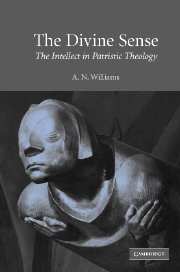Book contents
Chapter 5 - Monastic writings
Published online by Cambridge University Press: 22 September 2009
Summary
The authors surveyed thus far have all spanned what is from a modern perspective the gulf between ‘school’ theology and spirituality: their concerns fall in both areas and they move easily between the mood and rhetoric of academic, even combative, discourse and that of spiritual exhortation and contemplation. While some of them lived in a quasi-monastic style, at least for a time (Augustine and Gregory Nazianzen, for example), or simply practised some form of asceticism (Tertullian and Origen), none was either a cenobite or a solitary in the proper sense. In the earlier part of the period, of course, monasticism proper did not yet exist; if it had, conceivably Origen would have lived as a monk. Even in the later part of the period, the boundaries between the monastic and the non-monastic life seem to have been fine, with vowed religious leading lives of renunciation while living in the city and worshipping in ordinary parish churches. By about the middle of the fourth century, however, the deserts of Egypt had become home to enough serious renouncers that we can speak of a form of monasticism (as yet not sharply distinguished between the eremitic and the cenobitic), and along with this development, a body of texts belonging to a recognisable genre, albeit one by no means definitively distinguished from other Christian writings of the period.
- Type
- Chapter
- Information
- The Divine SenseThe Intellect in Patristic Theology, pp. 190 - 231Publisher: Cambridge University PressPrint publication year: 2007

